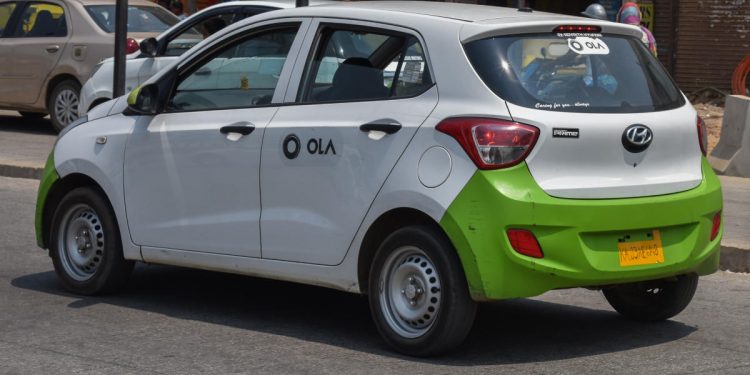Hyderabad: The Covid-19 pandemic has impacted all the sectors but some have been badly affected than the others. Those depending on day to day earnings for their livelihood have been the worst affected.
The pandemic has thrown a large number of cab drivers out of job. With meagre income for nearly seven months, its hand-to-mouth existence for hundreds of cab drivers in this tech hub.
As almost all the Information Technology companies still operating in work-from-home mode, 30,000 cabs hired by these companies have gone off the roads, rendering the drivers jobless.
Hiring of vehicles by dozens of IT companies in this bustling city was the main source of income for many travel operators and source of livelihood for the drivers.
Even those cab drivers who own the vehicles are struggling to survive. Their income has come down to one-third of what it used to be in pre-Covid days.
Though the number of daily Covid cases has come down significantly during the last couple of months, the drivers feel that there is not much improvement on the ground.
Tourism was another major sector providing revenues to travel operators and the cab drivers. With this sector taking a severe beating due to the pandemic, they are facing a really tough time.
For three months, almost all the cabs were off the roads during total lockdown and subsequently when there was partial relaxation.
When the cabs returned, there were hardly any passengers. The Covid-19 scare kept people away from the cabs.
Though restrictions in many sectors have been lifted over the last four months, the economic activity is yet to be restored to pre-Covid level.
Cab drivers used to make 10-15 trips every day, ferrying passengers to and from offices, airport, railway stations, buses, markets, tourist spots, hospitals and places on the outskirts.
Hyderabad has an estimated 1.2 lakh cabs apart from 30,000 cabs hired by IT/ITES companies.
“The lockdown may have been technically lifted but for cab drivers the lockdown is still continuing,” Shaikh Salahuddin, general secretary, Indian Federation of App-based Transport Workers (IFAT) told IANS.
He pointed out that every day 5,000 cabs used to operate at Hyderabad Airport but currently there are hardly 200 vehicles plying there.
Before the pandemic broke out, about 13,000 vehicles were in operation in the tourism sector but with the sector yet to open up, operators and drivers remained out of business.
As people started preferring personal vehicles due to fear of contracting Covid-19, the demand for cabs further came down.
On an average, a driver used to do 10-12 rides a day before the outbreak of Covid but now he is not doing even five rides.
With the income hardly sufficient to pay the Equated Monthly Installments (EMIs), ranging from Rs 13,000 to Rs 25,000 per month, many drivers have either lost their vehicles to the private financers or surrendered the cabs as they do not have money to pay the pending amount.
Adding to the woes of the drivers, some app-based taxi operators terminated the lease contracts with the drivers to take back the vehicles.
Many cabs are seen put on aFor sale’ at designated spots in the city.
The situation has forced many cab drivers to switch from their profession to other businesses.
Many cab drivers had come to city from villages to eke out a living but the pandemic and the hardships caused by it forced them to go back to villages, says Salahuddin, who also plans to write a book on their problem
Some drivers, who had their own vehicles, converted them into roadside shops selling masks, gloves, sanitisers, vegetables or fruits.
Unable to find customers, a driver Janardhan started working as a labourer at a construction site. He makes trips whenever he finds some customers.
Kondal Reddy sold his car to return to his village in Medak district to work as a tractor driver. AA”I had no other alternative to earn some money to run the house,” he said.
Another can driver Syed Moiz also had to surrender his vehicle to a cab aggregator. He works as an autorickshaw driver in the countryside to make ends meet.
Salahuddin pointed out that financiers, who were kept quiet during the lockdown, started pressurizing drivers for payment of EMIs as soon as the lockdown norms were relaxed. “The drivers had not even started making a decent income but the financers started collection of EMIs. Then there are demands for repayment of loans which the drivers had taken during the lockdown period to run the families,” said Salahuddin.
The cost of maintenance of vehicles has also gone up as the vehicles were kept idle for a long period.
“As of now there is only a slight improvement. With current unlock 5 and re-opening of cinema halls, we may see some chances of improvement in coming days,” he said.
He believes that only the re-opening of IT firms and other businesses, visit of business travellers and tourists and normalcy in other sectors of the economy can put things back on rails.
IANS






































